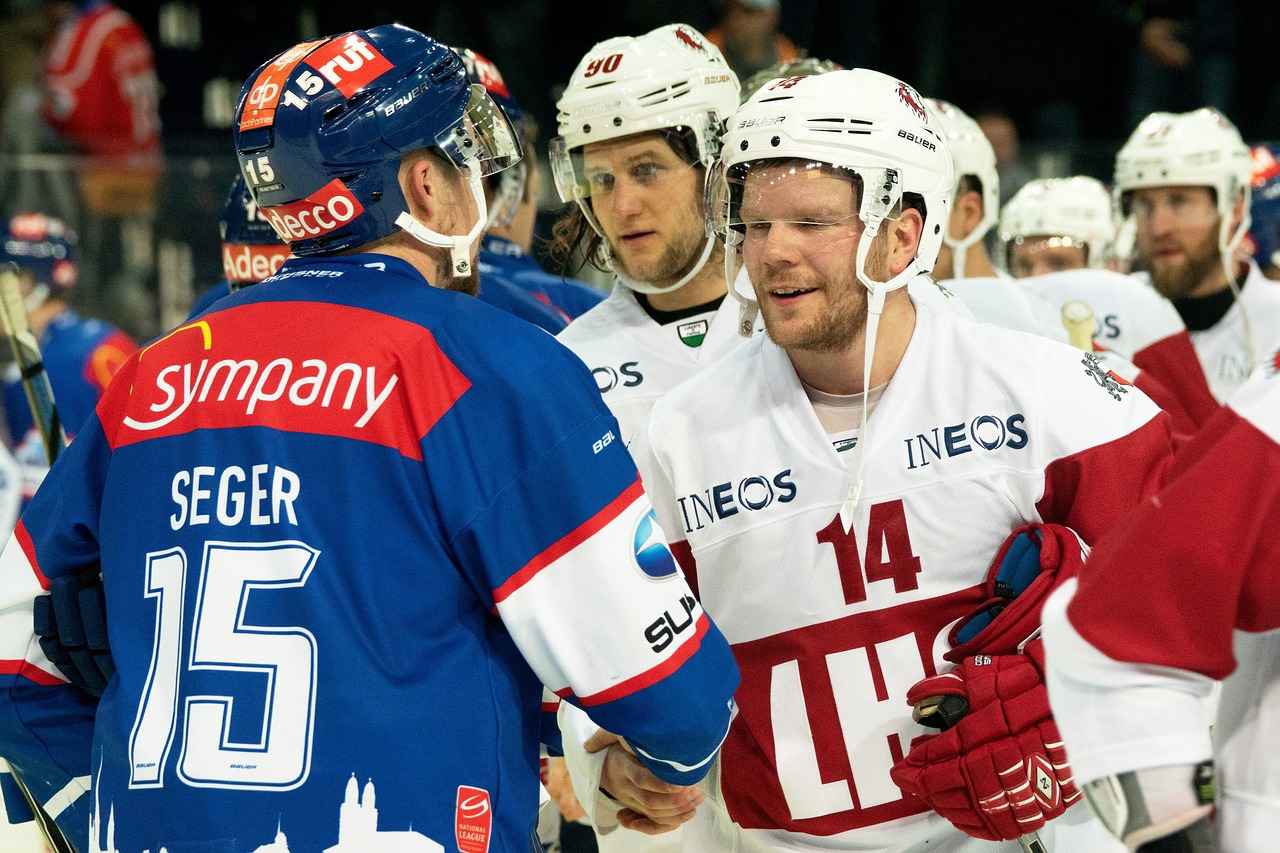This article delves into the key player statistics, game insights, and performance analysis of the Nashville Predators and St. Louis Blues, providing a comprehensive overview of both teams.
Overview of the Nashville Predators
The Nashville Predators have carved a notable niche in the NHL landscape through their dynamic gameplay and strategic prowess. Recent seasons have showcased their resilience and adaptability, with a roster filled with talent. Key players such as Roman Josi and Juuse Saros have been instrumental in driving the team’s performance, contributing both defensively and offensively. The Predators’ strategy often revolves around a strong defensive core combined with a fast-paced attack, making them a formidable opponent on the ice.
Overview of the St. Louis Blues
The St. Louis Blues boast a rich history in the NHL, marked by their 2019 Stanley Cup victory. Their current roster features stars like Ryan O’Reilly and Jordan Binnington, who play pivotal roles in both scoring and goaltending. The Blues employ a balanced approach, focusing on solid defense while leveraging their offensive capabilities. This blend of experience and skill allows them to compete effectively against any opponent.
Head-to-Head Matchup History
The rivalry between the Predators and Blues is steeped in history, with numerous memorable matchups that have shaped their competitive relationship. Historically, games between these two teams are often closely contested, with both sides showcasing their strengths. Analyzing past encounters reveals trends in scoring, defensive strategies, and overall game dynamics, providing insight into how future matchups might unfold.
Key Players to Watch in the Predators
Identifying standout players is crucial for understanding the Predators’ potential. Filip Forsberg has emerged as a key offensive contributor, known for his scoring ability and playmaking skills. Meanwhile, Matt Duchene adds depth to the lineup with his experience and versatility. These players, along with their supporting cast, will be essential in determining the Predators’ success in upcoming games.
Key Players to Watch in the Blues
The Blues have their own set of stars who can shift the momentum of a game. David Perron and Brayden Schenn are critical to the team’s offensive strategy, often leading the charge in scoring opportunities. Their ability to perform under pressure makes them players to watch closely in any matchup against the Predators.
Recent Performance Trends of the Predators
Analyzing the recent performance trends of the Nashville Predators reveals a team that has been fluctuating in form. Their win-loss record indicates periods of both success and struggle, with scoring averages fluctuating based on player health and matchups. Defensive statistics show improvement, but consistency remains key as they head into crucial games.
Recent Performance Trends of the Blues
The St. Louis Blues have also experienced ups and downs in their recent performances. Their offensive output has been strong at times, but defensive lapses have cost them crucial points. Understanding these trends is vital for predicting how they might perform against the Predators, especially in high-stakes situations.
Impact of Injuries on Team Performance
Injuries can significantly derail a team’s season, and both the Predators and Blues have faced challenges in this area. Key injuries can alter lineups and affect team chemistry, making it essential to monitor player health as the season progresses. The absence of pivotal players can lead to shifts in strategy and performance, impacting game outcomes.
Coaching Strategies: Predators vs. Blues
The coaching strategies employed by both teams play a crucial role in their success. The Predators’ coaching staff emphasizes a structured defensive game, while the Blues focus on maximizing their offensive capabilities. Understanding these philosophies provides insight into how each team will approach their matchups and adapt during games.
Special Teams Performance: Power Plays and Penalty Kills
Special teams can be game-changers, and both the Predators and Blues have unique strengths in this area. Evaluating their power play and penalty kill statistics reveals how effectively each team capitalizes on opportunities and defends against opponents. These metrics often determine the outcome of closely contested games.
Fan Engagement and Home Ice Advantage
Fan support is a vital element in the success of both teams, especially when playing at home. The electric atmosphere created by passionate fans can provide a significant boost, influencing player performance and morale. Understanding the impact of fan engagement in the Predators vs. Blues matchups highlights the importance of home ice advantage.
Future Matchup Predictions and Expectations
Looking ahead, predictions for future matchups between the Predators and Blues will be shaped by current statistics, player performances, and historical trends. Analyzing these factors will provide insights into potential outcomes, making it an exciting prospect for fans and analysts alike.

Overview of the Nashville Predators
The Nashville Predators have firmly established themselves as a formidable force in the NHL, boasting a competitive edge that has evolved over the years. Their journey has been marked by impressive performances, strategic gameplay, and a commitment to excellence that resonates with fans and analysts alike.
In recent seasons, the Predators have demonstrated a remarkable ability to adapt and overcome challenges. Their performance has been characterized by a blend of aggressive offense and resilient defense, making them a tough opponent for any team. The Predators’ recent record highlights their consistency, showcasing a series of victories that have solidified their position in the league standings.
One of the key factors contributing to the Predators’ success is their roster, which features several standout players. Filip Forsberg, known for his scoring prowess, has consistently been a top performer. His ability to find the back of the net, combined with his playmaking skills, makes him a player to watch. Additionally, Roman Josi, the team’s captain and a stellar defenseman, plays a crucial role in both offensive and defensive situations, often leading the charge in critical moments.
- Filip Forsberg: A dynamic forward with a knack for scoring.
- Roman Josi: A defensive stalwart and team leader.
- Juuse Saros: An exceptional goaltender whose performances can turn the tide of a game.
The Predators employ a tactical approach that emphasizes both speed and skill. Their coaching staff has instilled a philosophy of relentless pursuit of the puck, ensuring that players are always in motion and ready to capitalize on opponents’ mistakes. This strategy not only enhances their offensive capabilities but also fortifies their defensive structure, making it difficult for opposing teams to mount effective attacks.
Moreover, the Predators have been successful in leveraging their home ice advantage. The Bridgestone Arena is known for its electrifying atmosphere, where passionate fans create an environment that fuels the players’ performance. This home support has been instrumental in driving the team to achieve remarkable feats, particularly during crucial matchups.
In summary, the Nashville Predators have carved out a reputation as a competitive NHL team through a combination of skilled players, effective coaching strategies, and unwavering fan support. As they continue to evolve and adapt, their focus remains on not just maintaining their competitive edge but also striving for greater heights in the league.

Overview of the St. Louis Blues
The St. Louis Blues, a franchise rich in history and tradition, have made a significant mark in the NHL since their inception in 1967. Known for their passionate fan base and competitive spirit, the Blues have experienced a rollercoaster of seasons, showcasing both their strengths and weaknesses on the ice. This section delves into their recent performance, highlights some standout players, and examines their tactical approach to the game.
In the past few seasons, the St. Louis Blues have demonstrated a mix of resilience and struggles. After winning the Stanley Cup in 2019, the team faced challenges in maintaining consistent performance. Recent statistics indicate that the Blues have shown improvement in their offensive game, averaging over three goals per game this season. However, their defensive play has been inconsistent, leading to higher goals against average, which has raised concerns among fans and analysts alike.
The Blues boast several key players who have been instrumental in their recent success. Ryan O’Reilly, the team captain, is known for his leadership and two-way play. His ability to contribute both offensively and defensively makes him a pivotal player. Another standout is Jordan Kyrou, who has emerged as a dynamic scoring threat, showcasing his speed and skill. Additionally, Jordan Binnington, the goaltender, has had his ups and downs but remains a crucial part of the team’s success when he is in top form.
The St. Louis Blues employ a balanced tactical approach that emphasizes both offensive creativity and defensive responsibility. Their coaching staff focuses on a physical style of play, which can wear down opponents over the course of a game. The Blues often utilize a forechecking system that pressures opposing defenses, creating turnovers and scoring opportunities. Special teams play, particularly their power play, has been a focal point in recent games, with the team working to improve their efficiency in converting chances.
Despite their strengths, the Blues face several challenges moving forward. Injuries have plagued the team at times, affecting player availability and overall chemistry. Additionally, maintaining a consistent defensive structure will be vital to their success in the highly competitive NHL landscape. As they look to solidify their playoff positioning, the Blues will need to address these issues head-on and continue to build on their strengths.
In summary, the St. Louis Blues are a team with a rich history and a bright future. Their recent performance, combined with the talent of standout players and a solid tactical approach, positions them as a formidable competitor in the NHL. As they navigate the challenges ahead, fans remain hopeful for another deep playoff run.

Head-to-Head Matchup History
Understanding the historical context of the Nashville Predators and St. Louis Blues rivalry is crucial for fans and analysts alike. This competitive relationship has been shaped by numerous matchups that have defined both teams over the years. The intensity of their games often reflects the stakes involved, with playoff implications and divisional pride on the line.
- Early Encounters: The rivalry began to take shape during the early 2000s, as both teams were seeking to establish themselves in the NHL. The first few matchups were marked by close scores and intense physical play, setting the tone for future encounters.
- Key Playoff Battles: One of the most significant moments in this rivalry occurred during the 2017 Stanley Cup Playoffs when the Predators faced the Blues in the second round. This series showcased the high level of competition between the two teams, with the Predators ultimately advancing and making a run to the finals.
- Memorable Games: Certain games stand out as defining moments in the rivalry. For instance, a thrilling overtime match in 2018 highlighted the back-and-forth nature of their contests, with both teams showcasing their resilience and skill.
- Recent Trends: In recent seasons, the head-to-head record has fluctuated, with each team having periods of dominance. Analyzing these trends can provide insights into how each team has adapted their strategies to counter the other’s strengths.
The rivalry is not just about the games played; it also involves the passionate fan bases that contribute to the atmosphere. Home games for both teams often feature raucous crowds, adding to the intensity on the ice. The Predators’ home arena, Bridgestone Arena, is renowned for its electric atmosphere, while the Blues’ Enterprise Center offers a similarly charged environment.
As we look at the matchup history, it is essential to consider the statistics that accompany these encounters. A table summarizing the last ten head-to-head matchups can provide a clearer picture of their competitive landscape:
| Date | Predators Score | Blues Score | Location |
|---|---|---|---|
| March 1, 2023 | 4 | 3 | St. Louis |
| January 15, 2023 | 2 | 5 | Nashville |
| December 12, 2022 | 1 | 4 | St. Louis |
| November 5, 2022 | 3 | 2 | Nashville |
| October 20, 2022 | 0 | 6 | St. Louis |
| April 10, 2022 | 6 | 1 | Nashville |
| February 15, 2022 | 2 | 3 | St. Louis |
| January 25, 2022 | 5 | 4 | Nashville |
| December 18, 2021 | 3 | 1 | St. Louis |
| November 12, 2021 | 1 | 2 | Nashville |
In conclusion, the head-to-head matchup history between the Nashville Predators and St. Louis Blues is rich with competitive spirit and memorable moments. As both teams continue to evolve, fans can expect this rivalry to remain a focal point in the NHL landscape, with each game promising excitement and intensity.

Key Players to Watch in the Predators
When analyzing the Nashville Predators, it is essential to identify the key players who can significantly impact the team’s performance. These athletes not only contribute to the scoreboard but also play pivotal roles in their respective positions. Here, we highlight some of the standout players who fans and analysts should keep an eye on during the season.
- Roman Josi – As the captain and a premier defenseman, Josi is a cornerstone of the Predators’ defensive strategy. His ability to transition the puck from defense to offense is unmatched, and he often leads the team in ice time. Josi’s offensive skills, coupled with his defensive prowess, make him a critical player in tight games. His leadership on and off the ice provides stability and confidence to the entire roster.
- Juuse Saros – The goaltender for the Predators, Saros has emerged as one of the top netminders in the NHL. His quick reflexes and ability to read the game are vital for the team’s success. Saros consistently puts up impressive save percentages, and his performance can often determine the outcome of a game. Fans should watch for his ability to make clutch saves during high-pressure situations.
- Matt Duchene – Known for his scoring ability and playmaking skills, Duchene is a forward who can change the dynamics of a game. His vision on the ice and ability to create scoring opportunities for his teammates are invaluable. Duchene’s experience and skill set make him a player to watch, especially during critical moments when the team needs a goal.
- Filip Forsberg – Forsberg is another key player who brings offensive firepower to the Predators. His agility and scoring touch make him a constant threat on the ice. Forsberg’s ability to perform in clutch situations is well-documented, and he often finds ways to score in tight games. His chemistry with other forwards can lead to explosive offensive plays that can turn the tide in favor of the Predators.
- Ryan Johansen – As a seasoned forward, Johansen plays a crucial role in the Predators’ offensive strategy. His ability to win face-offs and create plays makes him a valuable asset. Johansen’s experience in high-stakes games adds depth to the team’s forward lineup, and his performance can significantly influence the team’s overall success.
In summary, the Nashville Predators feature a roster filled with talented players whose performances can greatly affect the outcome of games. By keeping an eye on these key athletes—Josi, Saros, Duchene, Forsberg, and Johansen—fans and analysts can gain valuable insights into the team’s potential success throughout the season. Each player’s unique skills and contributions make them essential to the Predators’ aspirations for victory.

Key Players to Watch in the Blues
The St. Louis Blues have consistently been a force in the NHL, boasting a roster filled with talent and skill. To understand their potential in upcoming matchups, it is crucial to highlight the players who could make a significant impact. Here, we delve into some of the standout athletes whose performances are vital for the Blues’ success.
- Ryan O’Reilly: As the captain of the Blues, Ryan O’Reilly is a pivotal player both on and off the ice. Known for his exceptional two-way play, O’Reilly leads by example and is often involved in crucial plays during tight games. His ability to win face-offs and contribute to both offensive and defensive strategies makes him a player to watch closely.
- Jordan Kyrou: This young forward has emerged as a dynamic offensive threat for the Blues. With his speed and agility, Kyrou can create scoring opportunities and is a key player on the power play. His recent performance has shown a marked improvement in his goal-scoring ability, making him a player to keep an eye on as the season progresses.
- Vladimir Tarasenko: A veteran presence on the team, Tarasenko is known for his powerful shot and scoring prowess. His experience in high-pressure situations is invaluable, and he has a knack for finding the back of the net when it matters most. Fans can expect to see him take charge in critical moments during games.
- Colton Parayko: As a top defenseman, Parayko plays a crucial role in the Blues’ defensive strategy. His physical play and ability to block shots are essential in maintaining the team’s defensive integrity. Moreover, he often contributes to the offense from the blue line, making him a dual threat on the ice.
- Jordan Binnington: In goal, Binnington has been a cornerstone for the Blues. His performance in net can often dictate the outcome of games. With a competitive spirit and the ability to make clutch saves, Binnington’s form will be critical as the Blues look to secure victories against tough opponents.
In addition to these key players, the Blues’ depth in talent cannot be overlooked. Players like Ivan Barbashev and Robert Thomas also contribute significantly, providing the team with a balanced attack and strong defensive support.
As the season unfolds, keeping an eye on these players will be essential for understanding the Blues’ performance and their potential to succeed in upcoming matchups. Their individual skills, combined with a strong team dynamic, position the Blues as formidable contenders in the NHL landscape.

Recent Performance Trends of the Predators
The analysis of the Nashville Predators’ recent performance trends reveals critical insights into their current form and competitiveness in the NHL. This section delves into their win-loss records, scoring averages, and defensive statistics, providing a comprehensive overview of how the team has been faring in the league.
- Win-Loss Records: The Predators have shown a mixed bag of results in their recent games. Over the past month, they have recorded a series of victories alongside some disappointing losses. This inconsistency has affected their standings in the Central Division, making each game crucial as they strive for playoff contention.
- Scoring Averages: On the offensive front, the Predators have been averaging around 3.2 goals per game, showcasing a potent attack led by key players. Their ability to score has been bolstered by effective power plays, where they convert approximately 25% of their opportunities, ranking them among the top teams in the league.
- Defensive Statistics: Defensively, the Predators have had their challenges. Allowing an average of 3.1 goals against per game indicates areas that need improvement. The team’s defensive unit has struggled with consistency, particularly in high-pressure situations, which has led to late-game collapses in some matchups.
Key Players Impacting Performance:- Roman Josi: As the captain, his leadership on the ice is pivotal.- Juuse Saros: The goaltender's performance can be a game-changer, making crucial saves.- Filip Forsberg: His scoring ability is vital for the team's success.
In addition to individual performances, the overall team strategy has evolved. The Predators have increasingly focused on a more aggressive forechecking style, aiming to create turnovers and capitalize on scoring opportunities. This shift in strategy has led to some exciting games, but it also comes with risks, particularly if the defense fails to back up the offense.
The coaching staff has emphasized the importance of discipline and maintaining structure, especially during critical moments in games. As the Predators continue to navigate through the season, their ability to adapt and refine their gameplay will be essential for achieving their goals.
As we look ahead, the upcoming matchups will be pivotal for the Predators. They must leverage their strengths while addressing their weaknesses to secure a favorable position as the season progresses. Monitoring these performance trends will be crucial for fans and analysts alike as they evaluate the team’s trajectory in the NHL.
Recent Performance Trends of the Blues
The St. Louis Blues have been navigating a dynamic landscape in the NHL, showcasing a mix of resilience and challenges in their recent games. Understanding their performance trends is essential for predicting their readiness for upcoming matchups. This section delves into their current form, examining both offensive and defensive metrics to provide a comprehensive analysis.
In the past few weeks, the St. Louis Blues have displayed a range of performance metrics that highlight their strengths and weaknesses. Their offensive capabilities have been particularly notable, with a scoring average that has fluctuated but generally remains competitive. Over the last ten games, the Blues have managed to score an average of 3.2 goals per game, showcasing their ability to find the back of the net consistently. This scoring output has been bolstered by key players stepping up, particularly in crucial moments.
- Top Scorers: Players like Jordan Kyrou and Robert Thomas have been instrumental, contributing significantly to the team’s scoring efforts.
- Power Play Efficiency: The Blues’ power play has seen a resurgence, converting approximately 25% of their opportunities, which is a marked improvement compared to earlier in the season.
On the defensive side, however, the Blues have encountered challenges. Their goals against average has hovered around 3.5 goals per game, indicating a need for improvement in their defensive strategies. The defensive unit has struggled with consistency, leading to lapses that have cost them crucial games. The following factors have contributed to their defensive struggles:
- Inconsistent Goaltending: The performance of the goaltenders has been variable, with both starters and backups having off nights that have led to high-scoring games against them.
- Defensive Zone Coverage: There have been instances of poor coverage in the defensive zone, allowing opposing teams to capitalize on scoring chances.
In addition to the statistics, the Blues have faced injuries that have impacted their lineup. Key players missing from the roster can disrupt chemistry and performance on the ice. The coaching staff has had to adapt, often relying on younger or less experienced players to fill the gaps, which can lead to inconsistencies.
As the season progresses, the Blues’ ability to balance their offensive firepower with improved defensive play will be crucial. Analyzing their upcoming matchups, it becomes evident that maintaining a strong offensive output while tightening their defensive strategies will be vital for success. The upcoming games will serve as a litmus test for the Blues, determining whether they can translate their recent performance trends into victories.
Overall, the St. Louis Blues are in a pivotal phase of their season. Their recent performance trends reflect a team striving for improvement, with the potential to make significant strides if they can address their defensive shortcomings while continuing to capitalize on their offensive strengths.

Impact of Injuries on Team Performance
Injuries can have a profound impact on a team’s performance, especially in the highly competitive environment of the NHL. For the Nashville Predators and St. Louis Blues, the current injury status of key players can significantly alter the dynamics of their matchups. This section will explore the ongoing injuries for both teams and analyze how these absences might affect their game outcomes.
For the Nashville Predators, injuries to pivotal players can disrupt their strategies and overall effectiveness on the ice. Currently, the Predators are facing challenges with some of their star players sidelined. For instance, if a top scorer is out due to injury, the team may struggle to maintain their offensive pressure. Additionally, the absence of key defensemen can lead to lapses in defensive coverage, potentially resulting in higher goals against. The Predators’ coaching staff will need to adjust their game plan, perhaps relying more on their depth players to step up and fill the void. This situation not only tests the resilience of the team but also impacts the morale of the players who are left to shoulder the extra burden.
On the other hand, the St. Louis Blues are also grappling with injury issues that could hinder their performance. If their starting goaltender is injured, the team could experience a decline in their ability to secure wins, as the backup may not have the same level of experience or skill. Moreover, injuries to forwards can limit the team’s scoring options, forcing them to rely on less experienced players who may not be ready for the increased responsibility. Such circumstances can lead to a lack of chemistry on the ice, as line combinations are shuffled to accommodate the missing players. The Blues will need to find ways to adapt quickly to these changes to remain competitive.
In terms of game outcomes, the influence of injuries cannot be overstated. Teams that can effectively manage injuries and maintain a strong bench will often have a competitive edge. The ability to rotate players and keep the lineup fresh can make a significant difference, especially in tightly contested games. Furthermore, the psychological aspect of injuries plays a role as well; teams that can stay mentally tough in the face of adversity often perform better than those who allow injuries to disrupt their focus.
In conclusion, as the Predators and Blues prepare for their upcoming matchups, the impact of injuries will be a critical factor to monitor. Understanding how these absences affect team dynamics, strategies, and overall performance can provide valuable insights for fans and analysts alike. Both teams will need to navigate these challenges carefully to put forth their best effort on the ice.

Coaching Strategies: Predators vs. Blues
In the high-stakes world of professional hockey, coaching strategies are pivotal in determining the outcomes of games. The Nashville Predators and St. Louis Blues, both formidable teams in the NHL, employ distinct coaching philosophies that significantly shape their gameplay and player performance. Understanding these strategies provides insights into how each team approaches the game and adapts to their opponents.
The Nashville Predators, under their coaching staff, emphasize a fast-paced, aggressive style of play. Their strategy focuses on maintaining puck possession and applying relentless pressure on the opposing defense. This approach often leads to high-scoring games, as the Predators aim to create multiple scoring opportunities. The coaching staff prioritizes developing players who can capitalize on these chances, fostering a culture of offensive creativity. Additionally, the Predators’ coaches stress the importance of a strong defensive structure, ensuring that players are well-positioned to transition quickly from defense to offense.
In contrast, the St. Louis Blues adopt a more balanced and tactical approach. Their coaching strategy revolves around a solid defensive foundation, with an emphasis on disciplined play and positional awareness. The Blues focus on minimizing turnovers and maximizing their scoring chances through calculated plays. This philosophy allows them to control the tempo of the game, often leading to lower-scoring affairs. The coaching staff encourages players to be adaptable, emphasizing the need to adjust strategies based on the flow of the game and the strengths of their opponents.
| Team | Coaching Philosophy | Key Focus Areas |
|---|---|---|
| Nashville Predators | Fast-paced, aggressive | Puck possession, offensive creativity, strong defense |
| St. Louis Blues | Balanced, tactical | Disciplined play, defensive foundation, adaptability |
Both teams’ coaching strategies are influenced by their respective rosters. The Predators leverage their speed and skill, encouraging players to take risks and exploit defensive gaps. This strategy can lead to exhilarating gameplay, but it also requires players to be disciplined defensively to avoid counterattacks. Conversely, the Blues’ coaching staff emphasizes teamwork and communication, ensuring that players are always aware of their roles on the ice. This cohesive approach often results in a well-structured team that can effectively neutralize the Predators’ offensive threats.
Furthermore, the coaching dynamics during games can shift based on the score and time remaining. For instance, if the Predators find themselves trailing, their coaches may opt to implement more aggressive strategies, pulling the goalie for an extra attacker. On the other hand, the Blues may tighten their defensive play, focusing on maintaining their lead and minimizing risks. These in-game adjustments highlight the importance of coaching in responding to the evolving nature of a hockey match.
In summary, the coaching strategies of the Nashville Predators and St. Louis Blues are fundamental to their performance and success on the ice. By understanding these philosophies, fans and analysts alike can gain a deeper appreciation for the intricacies of the game and the tactical battles that unfold during matchups. The effectiveness of each team’s strategy will ultimately be tested in their ongoing rivalry, making every game a compelling contest of skill, strategy, and determination.

Special Teams Performance: Power Plays and Penalty Kills
In the fast-paced world of professional hockey, special teams can often tip the scales in favor of one team over another. The effectiveness of power plays and penalty kills is a critical aspect of the game that can determine the outcome of tightly contested matches. This section delves into the statistics and performance metrics of both the Nashville Predators and St. Louis Blues in these crucial areas.
The Nashville Predators have shown a commendable performance on the power play this season. With a power play percentage hovering around 25%, they rank among the top teams in the league. Their strategy often revolves around quick puck movement and utilizing their skilled forwards to create high-quality scoring chances. Key players such as Roman Josi and Matt Duchene have been pivotal, showcasing their ability to find open lanes and capitalize on opportunities. The Predators’ ability to convert on the power play not only boosts their scoring but also demoralizes opposing teams, making them a significant threat when they have the man advantage.
On the flip side, the St. Louis Blues have also made strides in their power play effectiveness. Currently, their power play percentage stands at around 22%, which, while slightly lower than the Predators, still places them in a competitive position. The Blues employ a more traditional approach, focusing on setting up in the offensive zone to create space for shooters like Vladimir Tarasenko. Their success often hinges on the ability to maintain possession and effectively utilize their point men. However, consistency has been an issue, and they will need to improve if they wish to compete at the highest level during crucial game moments.
When it comes to penalty killing, both teams exhibit contrasting styles and effectiveness. The Predators boast a penalty kill percentage of approximately 80%, showcasing their ability to thwart opposing power plays. Their aggressive forecheck and disciplined positioning make it challenging for opponents to establish a rhythm when on the power play. Players like Ryan Johansen and Colton Sissons excel in this area, often creating shorthanded scoring opportunities while maintaining solid defensive coverage.
Conversely, the Blues’ penalty kill has been less effective, with a percentage around 75%. This statistic highlights some vulnerabilities that opposing teams have exploited. The Blues need to focus on improving their communication and positioning during penalty kills to avoid giving up high-quality chances. The presence of experienced players like Brayden Schenn can be beneficial, as they bring the necessary grit and determination to help turn the tide in these situations.
In summary, the special teams play of both the Nashville Predators and St. Louis Blues serves as a barometer for their overall performance. The Predators’ high power play conversion rate and solid penalty kill demonstrate their capability to capitalize on opportunities and defend effectively. Meanwhile, the Blues have room for improvement, particularly in their penalty killing efforts. As the season progresses, the effectiveness of these special teams will undoubtedly play a crucial role in determining the success of both franchises in their pursuit of victory.

Fan Engagement and Home Ice Advantage
The Nashville Predators and St. Louis Blues share a fierce rivalry in the NHL, and one of the most significant factors influencing their matchups is the role of fan engagement and home ice advantage. In this section, we will explore how passionate fan support can elevate team performance, particularly when playing at home.
Fan engagement can create an electrifying atmosphere that boosts player morale and performance. When fans fill the stands, their energy becomes palpable, often translating into heightened performance levels on the ice. Players often cite the support from their fans as a motivating factor, especially during critical moments of the game. The Predators have a reputation for their dedicated fan base, known for creating a raucous environment at Bridgestone Arena. This support can lead to a psychological edge, where players feel invincible when backed by their loyal supporters.
Playing at home provides teams with a distinct advantage. The familiarity with the rink, the support of local fans, and the absence of travel fatigue all contribute to improved performance. The Predators have historically performed well at home, leveraging their home ice advantage to secure crucial victories. In contrast, the Blues also benefit from their home crowd, making matchups between these two teams particularly intense. The home team often enjoys the advantage of last change, which allows coaches to dictate matchups more effectively.
| Team | Home Wins | Away Wins | Home Winning Percentage |
|---|---|---|---|
| Nashville Predators | 20 | 15 | 57% |
| St. Louis Blues | 18 | 12 | 55% |
- Interactive Events: Teams often host fan events that encourage engagement, such as meet-and-greets with players or community outreach programs.
- Social Media Interaction: The use of social media platforms allows fans to connect with teams, share their experiences, and participate in live discussions during games.
- In-Game Experiences: Enhancing the in-game experience with entertainment, giveaways, and fan participation activities can significantly boost the atmosphere during home games.
Rivalry games, such as those between the Predators and Blues, often see an increase in fan attendance and engagement. The stakes are higher, and the atmosphere is charged with excitement. Loyal fans are known to travel for away games, further supporting their team and creating a sense of unity. This loyalty can influence a team’s performance, as players feel the weight of their fans’ expectations and support.
While statistics and player performance are critical in determining the outcomes of games, the impact of fan engagement and home ice advantage cannot be understated. The Nashville Predators and St. Louis Blues exemplify how passionate supporters can elevate a team’s performance, especially during high-stakes matchups. As the rivalry continues, the role of fans will remain a pivotal factor in shaping the outcomes of these thrilling encounters.

Future Matchup Predictions and Expectations
As we look forward to the upcoming matchups between the Nashville Predators and St. Louis Blues, it’s essential to analyze various factors that could influence the outcomes of these games. By examining current statistics, player performances, and historical trends, we can make informed predictions about how these two competitive teams may fare against one another in the near future.
One of the critical aspects to consider is the current form of both teams. The Predators have shown a steady improvement in their offensive capabilities, with key players such as Roman Josi and Matt Duchene consistently contributing to the scoreboard. Their recent games indicate a trend of increased scoring, which could pose a challenge for the Blues’ defense. On the other hand, the Blues, led by stars like Ryan O’Reilly and Jordan Kyrou, are known for their resilience and ability to bounce back after tough losses. Their recent performances suggest they are also finding their rhythm, making future matchups highly competitive.
In addition to player performances, historical trends play a significant role in predicting outcomes. Historically, the rivalry between the Predators and Blues has been closely contested, with many games decided by one goal. This trend indicates that fans can expect tightly contested matchups in the future. Furthermore, analyzing past encounters can reveal patterns in how each team approaches games against one another, including strategies employed and adjustments made during play.
Another crucial factor is the impact of injuries on both teams. As the season progresses, injuries can significantly affect a team’s performance. Currently, both the Predators and Blues have players on their injury lists. The absence of key players can shift the dynamics of a game, making it vital to monitor injury reports leading up to each matchup. If either team is missing a star player, it could tilt the odds in favor of the healthier squad.
Coaching strategies also come into play when predicting future matchups. The Predators’ coaching staff has been known to adapt their game plans based on the opponent, which could be pivotal in their matchups against the Blues. Similarly, the Blues’ coaching philosophy emphasizes a strong defensive structure, which could challenge the Predators’ offensive strategies. Understanding how each coach prepares their team for these encounters will be key to anticipating game outcomes.
Lastly, fan engagement and home ice advantage cannot be overlooked. The Predators have a robust fan base that provides significant support during home games, often creating an electrifying atmosphere that can motivate players. Conversely, the Blues also benefit from passionate fans, especially during crucial playoff games. Home ice advantage can be a deciding factor, especially in the playoffs, where the energy of the crowd can influence player performance.
In conclusion, while predicting the outcomes of future matchups between the Nashville Predators and St. Louis Blues involves many variables, the combination of current statistics, player performances, historical trends, and external factors such as injuries and fan support will play a crucial role. Fans can look forward to thrilling games as both teams vie for supremacy in this intense rivalry.
Frequently Asked Questions
- What is the historical rivalry between the Nashville Predators and St. Louis Blues?
The rivalry between the Nashville Predators and St. Louis Blues is intense, characterized by close matchups and memorable games. Both teams have a rich history in the NHL, with numerous playoff encounters that heighten the stakes each time they face off.
- Who are the key players to watch in the upcoming games?
For the Nashville Predators, keep an eye on players like Roman Josi and Juuse Saros, who often lead in points and saves. On the other hand, the St. Louis Blues’ stars like Ryan O’Reilly and Jordan Binnington can significantly impact the game with their skills and experience.
- How do injuries affect team performance?
Injuries can greatly influence a team’s dynamics, often leading to changes in lineups and strategies. For both the Predators and Blues, key injuries can shift the balance of power, making it crucial to monitor player health leading up to matchups.
- What role do special teams play in the games?
Special teams, including power plays and penalty kills, can be game-changers. A strong power play can capitalize on opponent mistakes, while an effective penalty kill can thwart scoring opportunities, making these aspects vital in determining the game’s outcome.
- How does fan engagement impact game performance?
Fan support is a significant factor, especially at home games. The energy and enthusiasm from the crowd can boost player morale and performance, giving the home team a distinct advantage in crucial moments.














